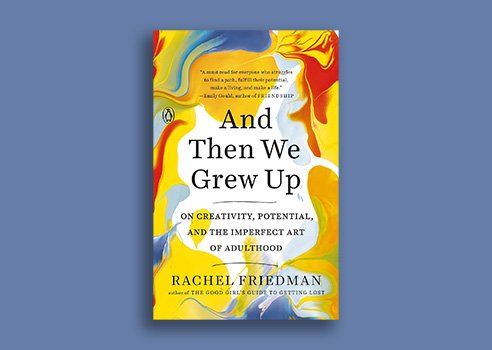Reading time: Less than 1 minute
I like to share interesting pieces of figurative language I encounter in my reading. I write today about some metaphors from Rachel Friedman…
The book’s subtitle says it all: On Creativity, Potential and the Imperfect Art of Adulthood.
A tiny, perfect book by Rachel Friedman, published under the main title, And Then We Grew Up explores what happens when talented, artsy youngsters become adults with independent careers, relationships, and identities.
Friedman had started her life as a serious violinist. She rehearsed for many hours each day, spent a number of summers at the prestigious Interlochen Arts Camp in Michigan — home to aspiring actors, artists, dancers, and musicians — and even started pursuing an undergraduate degree in violin, before dropping out to become a journalist.
Many years later, plagued by her doubts about the road not taken, she tracked down some of her former classmates and produced this fascinating and meditative book about creativity.
Although I read this book for the content rather than the writing style, I found her relaxed approach easy to read and some of her figurative language to be both apt and amusing.
Here are my favourite examples:
- Nevertheless, when my accountant added up the numbers, I somehow owed way more money than was in my savings account, which was more of an aspirational ideal than a place actual currency resided.
- “In the long run we are all dead, and none of us is Proust,” as Anne Enright summed up.
- The days we hung out stretched time like an accordion.
Although the Proust comment is from Anne Enright, I’m prepared to give Friedman some of the credit for having the smarts to find it and the wisdom to use it.
Incidentally, the book received a positive notice in Kirkus Reviews and was named one of Publisher’s Weekly best books of 2019.


